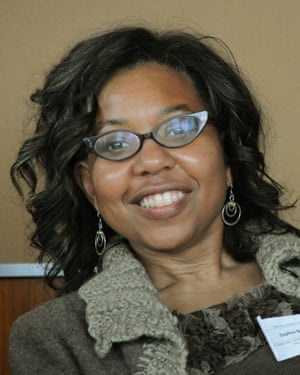Receive updates from the Harry T. Burleigh Society, as well as video recordings from our past performances.
Professor Daphne Brooks,
Keynote Speaker

Daphne Brooks is the William R. Kenan, Jr. Professor of African American Studies, Theater Studies, American Studies, and Women’s, Gender, and Sexuality Studies at Yale University.
She is the keynote speaker for the “More than the Promise of the American Myth: Rethinking Burleigh and Sheppard in the Second Gilded Age.”
How did your entry point into black feminist sonic archives lead you to inquire about Ella Sheppard?
My path to Ella Sheppard started with one of her stunning contemporaries, black feminist journalist, novelist, uplift activist, and former-concert soprano, Pauline Hopkins. As editor of the Colored American Magazine, Pauline Hopkins covered the concerts of the Fisk Jubilee Singers, and she eventually wrote a serialized novel, the lyrical, pan-Africanist epic Of One Blood (1902-3) which traced the mystic trials and tribulations of a fictional Jubilee singer. What intrigued me most about Hopkins’ writing was her passion for the music made by Ella Sheppard and her fellow luminous female vocalists who were members of the first pioneering troupe (women such as Maggie Porter, Jennie Jackson, Mabel Lewis and America Robinson). Hopkins championed the virtuosic complexities of these women’s performances and their ability to move and sway white audiences to advocate for black enfranchisement in the face of post-Reconstruction racial backlash. The kinds of questions that I’ve been asking of the archive have to do with the quotidian details of both Hopkins and Sheppard’s respective craft. How might we imagine the nuances of each woman’s aesthetic preparation, the rigor of each artist's study and training—to write, to compose, to sing and perform? Can we even imagine how many hours went into Sheppard’s rehearsals and what those rehearsals entailed? Can we envision how many composition drafts of works-in-progress that she produced? Can we conjure in our minds the ways that these women may have sat at their desks, their kitchen tables, or on the couch in their parlors late into the night making art to liberate a people? The intimate artistic life (to borrow an important formulation from cultural historian Saidiya Hartman) of Ella Sheppard’s sonic world is something that we might ponder as we celebrate her enduring legacies.
